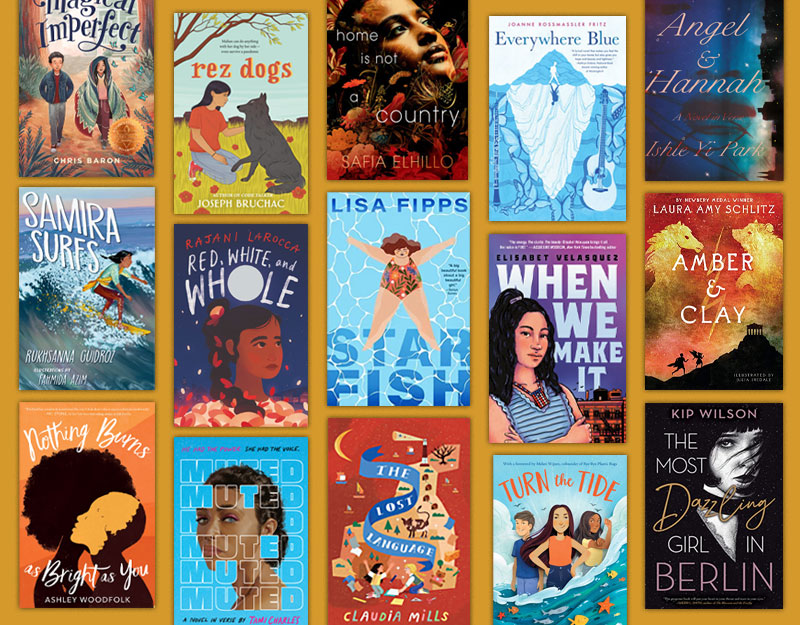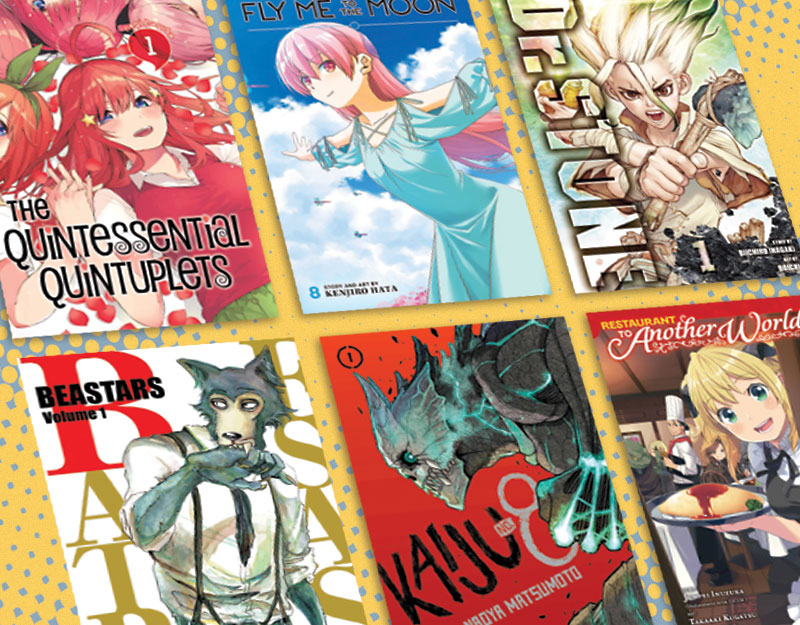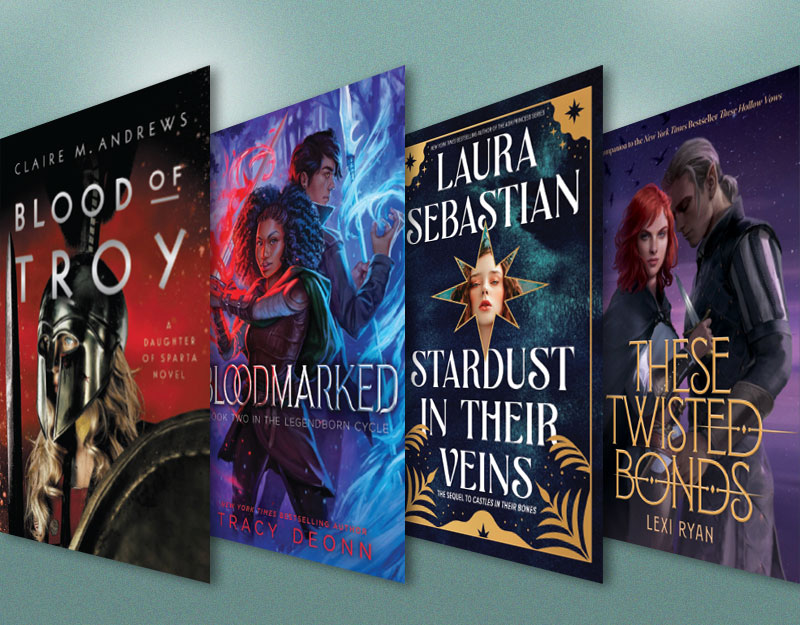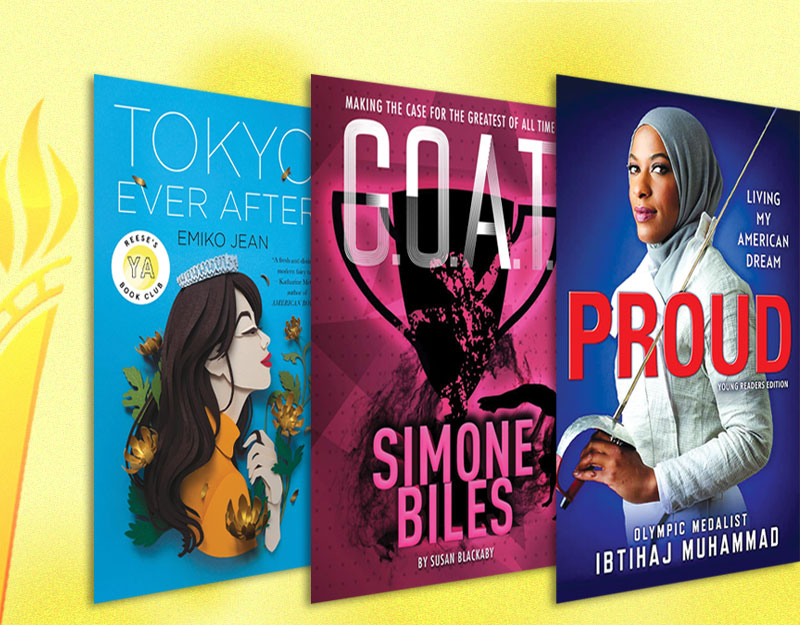Feminist AF: Internal Revolutions: Books + Emotional Literacy a guest post by Emma Fernhout
 March for Our Lives. Youth Climate Strike. The Women’s March. The last several years have shown us that teenagers can, and will, lead or participate in resistance. They will study, discuss, and stand up, sometimes when adults hesitate. Should this surprise us? Teenagers and young adults lead revolutions as our books, written by adults who believe in them, have taught them to.
March for Our Lives. Youth Climate Strike. The Women’s March. The last several years have shown us that teenagers can, and will, lead or participate in resistance. They will study, discuss, and stand up, sometimes when adults hesitate. Should this surprise us? Teenagers and young adults lead revolutions as our books, written by adults who believe in them, have taught them to.
Sometimes this revolution is internal. This may be especially true when examining YA books’ impact covering current events. For example, in the age of University required consent classes, YA books covering movements such as #MeToo have power to equip readers for real life. I believe we are remembering books’ emotional political power, as we begin to discuss more openly the damage our society imparts.
ADVERTISEMENT
ADVERTISEMENT
Of course, I read and hear many critiques about over-emotional political rhetoric, but I’d like to note that this critique is often given to women, from the voice of men. Two articles to consult on this topic include Political Revisioning: How Men Police Women’s Anger in Writing Workshops and The History of Female Anger. Perhaps the truth is that we lack emotional literacy, tending to graze the surface of our feelings with less regard for the layers of emotions simmering beneath. Psychologist Hilary Jacobs Hendel calls this the “Change Triangle,” mapping the depth of our feelings. Without this self-awareness, we might misguidedly pin-point fears and thus act in ways that do little to resolve the root of the tension.
People experience the world through the lens of feeling, or lack thereof. This is especially true in the context of sexual assault. Mental health matters.
Yet when we open a book, we also are opened, within a safe environment of expression and experience. Books allow us to make sense of the world, and ourselves, whether by second hand experience or prompted thought and assessment.
Books as Vessels for Empathy
Books may open a cavity within readers for empathy, allowing readers to enter into a situation which they have recently heard much about, often via third party sources such as news outlets and social media. Books are a valuable and comparable method of immersion: Reading offers a safe venue in which to experience a reality, another world other people are forced to live within, complete with thoughts and sight. It allows a reader to steep within another’s mind, perspective, and world, while still offering the control to the reader: one may pause, put the book down, and return to their own reality if they so need.
But if we hear about sexual assault so often, why would we need books to help educate ourselves? Isn’t the knowledge assault exists enough? Perhaps, but we read to gain perspective. How many different points of view are offered, to best reflect our diverse world and complex situations (eg, perspectives such as survivor, bystander, and friends, not to mention within different cultural contexts?) The goal is not just to know an issue is occurring, but to truly hear and glimpse the emotional reality and gravity of these stories. What does the occurrence of an event actually mean to those it touches? We can hear the data all day, but the stories producing the data are just as important as the statistics. People- lives– are simply numbers. This fact needs to weigh on authors, reminding them of their responsibility to be careful, authentic, and vulnerable through their work.
Empathy Leads to Educated Guesses and Questions
Only after we are more knowledgeable may we be equipped to ask educated questions of authority, peers, and ourselves. Only then may we intelligently exponentially evolve in better directions. This requires bravery and discomfort, which is, again, why the safe venue of a book is so helpful. Fiction allows the reader to be present for a glimpse into the stories that are blasted across our screens.
Our emotional literacy is improved as we continually learn to understand- or simply respect- the emotional and situational complexity of situations that are so rarely very black and white as they seem.
For example, as we peek into the minds of sexual assault survivors, we may be less likely to ask, “Why didn’t she report the sexual assault sooner?” Books offer a window into messy situations, revealing consequences and complications. We see how multiple characters and situations affect a person. This may hopefully alleviate victim blaming, especially for situations that may occur within bubbles, such as sexual assault in the bubble of a high school, stranding individuals within its confines.
With increased understanding of the complex situations surrounding us, we are equipped to make better decisions, our respectful empathy increased. We may more easily pause and consider of ourselves, peers and authorities, “What energy am I bringing into this space? How might I be touching others, and what options are available to me?”
Question everything, always, gently employing rhetoric and emotional literacy.
Books as Methods for Both Validation and Catharsis
Last April, I listened to Lynda Barry tell a room full of teenagers and adults that catharsis is a biological state of reflection, intertwined with imagery:
I believe that the arts are like an external immune system. I believe that they have a biological function.
The fastest way I can explain it is that there is this brilliant neuroscientist named V. S. Ramachandran, who wrote a book called Phantoms in the Brain. He was very interested in people with phantom-limb pain, and he had one patient who had lost his hand from the wrist down, but the guy’s sensation was not only that the hand was still there, but that it was in a painful fist that kept clenching. Ramachandran built a box, with a mirror and two holes in one side. When the guy put his arms in, he saw the one hand reflected [as if he could see both of his hands]. When he opened the hand, he saw it open and it was like the missing hand was unclenching. It fixed his phantom-limb sensation. That’s what I think images do; that’s what the arts do. In the course of human life we have a million phantom-limb pains—losing a parent when you’re little, being in a war, even something as dumb as having a mean teacher—and seeing it somehow reflected, whether it’s in our own work or listening to a song, is a way to deal with it.
The Greeks knew about it. They called it catharsis, right? And without it we’re fucked. I think this is the thing that keeps our mental health or emotional health in balance, and we’re born with an impulse toward it.
// via The Paris Review
Stories of trauma, whether sexual assault, absent parents, disabilities, or subtle injuries, are important to make available. Suddenly, a reader is not alone within their possibly isolated world. Personal stories are physically validated, through a bundle of paper that one can hold in their hands, knowing that someone else thought through the complexity and thought it important enough to commit it to paper. They are believed in.
Books as Vehicles for Questioning Multiple Points of View
Complex subjects are infinitely more complex than we realize. A sexual assault narrative may have varying facets depending on characters and forms, such as realism, essay, poetry, history, comics, characters of color, lgbtq+ characters, and more. In addition, due to complex subject matters, books should also include a range of point of view, from, in the case of #MeToo, survivor, bystanders, and friends. Complex subjects cannot, and should not, be dumbed down to one point of view impacted.
It is also important to allow some attention for authors. Whose perspective are we investing in? For example, reading diverse characters primarily written by white, straight, cis, fully abled characters is not reading diversely. Read from the voices you seek to see. Their voices are authentic, and there is little risk of token inclusion for the sake of diversity trends.
ADVERTISEMENT
ADVERTISEMENT
Yes, this is slightly overwhelming, but perhaps it is the small work we need to embrace as we select our literature, especially if one is in the position to recommend work to others. I am afraid to become someone who wears the title of an open-hearted librarian, opening the doors for anyone who needs information, without doing the work of careful listening. I refuse to glean most of my ideals and ideas about other identities from voices that sound exactly like mine. This includes tough subjects such as sexual assault. If I’m going to read about this experience, to open myself up, hopefully I will not primarily hear my point of view, as culture does not treat everyone identically. Similarly, I need more queer writers. Disabled writers. Asian authors. Native writers. Who are the voices I have neglected to find, and when I do read them, who recommended them? Who is the expert for accuracy?
I want to be a better listener, and thus expand my capacity for empathy and educated opinions.
I want to continue to find myself reflected in works of all kinds and voices.
I too have stayed up late reading, crying into a book, and rushed to tell the author how they told my own story. I understand that sense of release, and it is priceless, and all people deserve this feeling.
My hope is that publishers value this feeling over marketability, especially if we consume these works. For example, whitewashing is an issue for all authors, whether white or AOC’s.
There is much to be said on the topic of diversity, and better voices to speak it. If you’re interested, I encourage you to continue research, perhaps beginning with these resources: We Need Diverse Books and OwnVoices: Why We Need Diverse Authors in Children’s Literature.
Feelings and Experience Matter, and I Hope We May Embrace Ourselves and Others.
I understand; Emotions are not necessarily measurable or standard. What hurts one person might not hurt everyone, but what does this say about our views of other people’s worth? How do we decide who matters? What is this measuring stick, and would any of us measure up on every measuring stick?
I don’t believe so.
We all have to exist inside ourselves, and feel.
Feelings are scary, but they matter. They are a lens on experience.
People matter. You matter. Others matter too.
Books help us remember. Keep reading.
 Emma Fernhout is a youth librarian, poet, and MLIS student, armed with a yoga mat, and a BA in Creative Writing Poetry from UMKC.
Emma Fernhout is a youth librarian, poet, and MLIS student, armed with a yoga mat, and a BA in Creative Writing Poetry from UMKC.
Filed under: Guest Post
About Robin Willis
After working in middle school libraries for over 20 years, Robin Willis now works in a public library system in Maryland.
ADVERTISEMENT
ADVERTISEMENT
SLJ Blog Network
Name That LEGO Book Cover! (#53)
Cover Reveal and Q&A: The One and Only Googoosh with Azadeh Westergaard
K is in Trouble | Review
Fighting Public School Book Bans with the Civil Rights Act
ADVERTISEMENT







